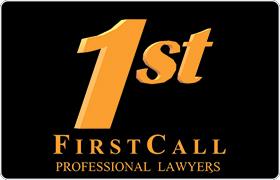Trabuco Canyon RICO Act Lawyer, California
Sponsored Law Firm
-
 x
x

Click For More Info:
-
First Call Legal Services Corporation
530 Hacienda Dr Unit 101B Vista, CA 92081» view mapCriminal Defense Effective. Versatile. Decisive.
Our vision is to build strong, trust-based client relationships from our first handshake. Every challenge is an opportunity. You need the RIGHT PEOPLE for the job you want done.
760-690-3999
Not enough matches for Trabuco Canyon RICO Act lawyer.
Below are all Trabuco Canyon Criminal lawyers.
John Nicholas Aquilina
✓ VERIFIEDCriminal, Felony, RICO Act, Federal
If you have been accused of a crime, you deserve personal representation and individual attention from a certified specialist in criminal law. John Aq... (more)
 First Call Legal Services Vista, CA
First Call Legal Services Vista, CA Practice AreasExpertise
Practice AreasExpertise

